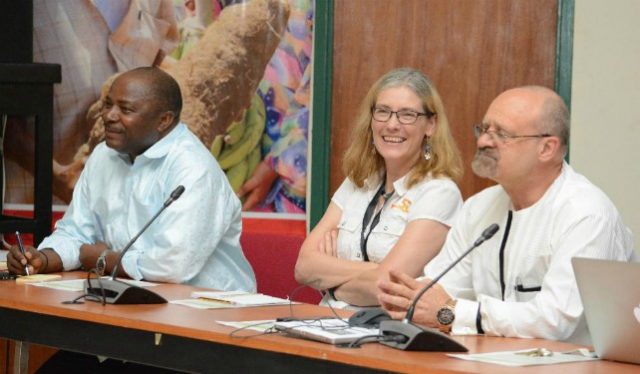
A team of researchers working on the International Institute of Tropical Agriculture-managed Cassava Weed Management Project (IITA-CWMP) have said findings from the 5-year project will respond and address the problems of weeds especially in cassava farming systems.
The challenge of weeds on Nigeria’s agricultural productivity was brought to the fore at the meeting of the Nigeria Zero Hunger Forum (NZHF) held in Ebonyi State, southeast Nigeria.
The Director General of IITA, Dr Nteranya Sanginga, said with cassava featuring as one of the top priority crops in most states of Nigeria, the IITA-CWMP would provide innovations to help the government to tackle the weed menace.
“We want to see increases in yield in Nigeria, and our innovation in cassava weed management will help states with cassava as a priority crop to tackle weeds—a major constraint to cassava transformation,” he explained today.
Last year, Ebonyi State Governor, David Umahi, in listing the challenges facing agricultural development, noted that weeds were the most notorious constraint limiting agriculture development. Worse still, the adulteration of herbicides is not helping matters and is undermining efforts by resource-poor farmers to raise their productivity.
Expressing concerns over the issue, stakeholders unanimously issued a communique calling on the Federal Government to step up the regulation on use and distribution of herbicides and input market.
They worried that the uncontrolled influx of adulterated herbicides in the Nigerian market was jeopardizing the gains made so far in transforming agriculture and efforts to attain zero hunger.
The goal to attain zero hunger is a commitment Nigeria has made since the declaration of the Sustainable Development Goals (SDGs) in 2015.
Taking the SDGs forward, Nigeria’s former President, Chief Olusegun Obasanjo, has initiated and is leading efforts to help the country to achieve SDG 2 (Zero Hunger) with the creation of the Nigeria Zero Hunger Forum initiative.
The former president, with the support of IITA, the World Food Program (WFP), and the African Development Bank (AfDB), has created a forum comprising six pilot states that are desiring to hit the target of zero hunger by 2025.
The Deputy Director General, Partnership for Delivery, Dr Kenton Dashiell, said IITA’s participation in NHZF would help Nigeria to tap the institute’s capacity in science and innovation to address hunger in the country.
Dr Alfred Dixon, Project Leader, IITA-CWMP noted that once the problem of weeds is addressed, farmers would have a boom in harvest.
The meeting in Ebonyi, which attracted about 500 persons from both the public and private sectors, was the second after the initial one in Benue state.
Packaged by Mayowa Owogbade










































































